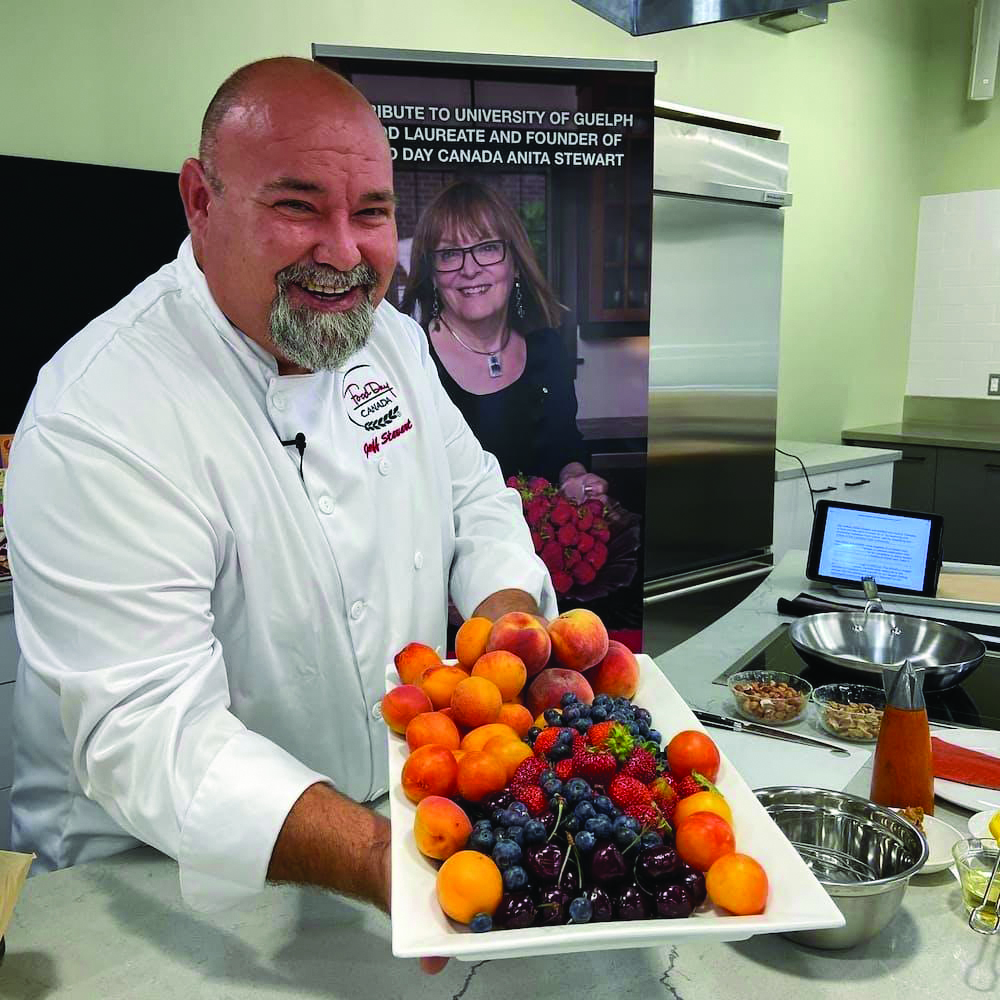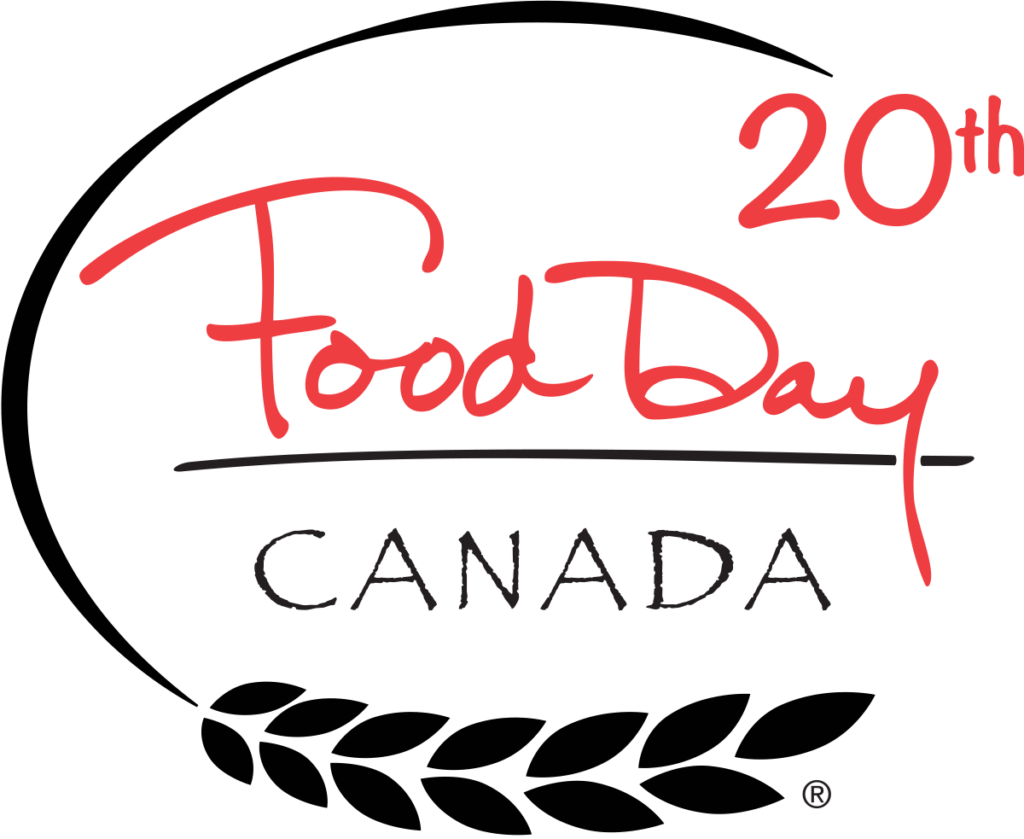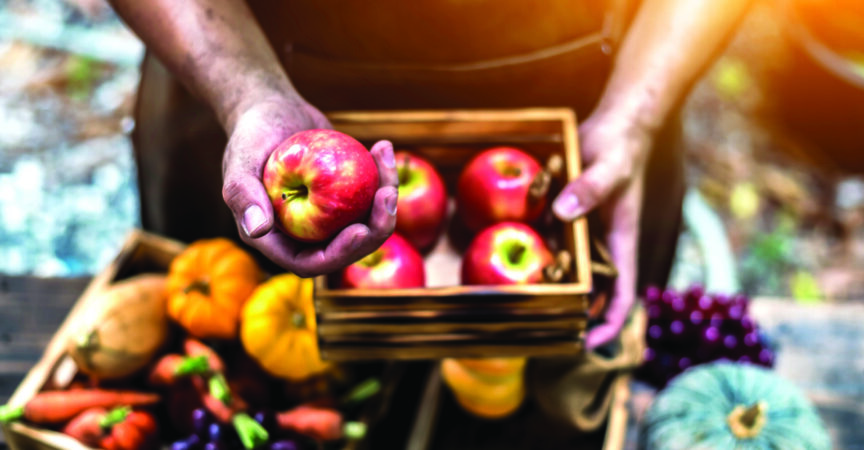A Simmering Legacy: Food Day Canada Comes of Age and Steps into the Spotlight
The first iteration of Food Day Canada was the World’s Longest Barbeque, which was created by Anita Stewart along with her family and supporters, to support beef ranchers and farmers during the BSE outbreak. Since then, the event has evolved into a national affair, with a deeper and broader lens. Aiming to inspire and engage, Food Day Canada praises the entire food chain, from Canadian farmers, butchers, chefs and restaurants to home cooks, economists and gardeners.
Anita Stewart was a food activist and educator, who defined both the study and practice of Canadian culinary tourism. The first Canadian to earn an M.A. in gastronomy, she wrote and contributed to many award-winning cookbooks and other works over the course of her career. A journalist, food historian and media personality, she also chaired and steered the very first pan-Canadian alliance of food professionals. In 2012, Stewart was named Canada’s first Food Laureate at the University of Guelph, where she provided food advocacy and ambassadorship, boosting the university’s already prestigious reputation for culinary research and technology. According to her family, her mantra was: “Canada IS food and the world is richer for it.”
Extolling everyone from farmers, fishers and other primary producers of original ingredients to the creators of complex and spectacular dishes as well as the final consumers who enjoy them, Food Day Canada also encourages the growth and examination of our unique food culture. The event also promotes research and education, respect for the environment and sustainable practices, food sovereignty and security, and diversity, equality, and inclusion across our food system.
This year marked the 20th anniversary of Food Day Canada and the first year the event received official federal government status. On August 5, 2023, this year’s Food Day Canada, the Minister of Agriculture and Agri-Food Lawrence MacAulay announced Bill S-227 had received final assent in May. The Food Day in Canada Act officially declares the Saturday before the first Monday of August as ‘Food Day in Canada’ every year, “which celebrates all the hard-working people across our food systems and recognizes the variety of the high-quality, world-class food that they produce.”
This year’s anniversary event set astonishing participation and awareness records in an appropriate nod to the strength and value of Anita Stewart’s legacy and life’s work and an idea that has found its time.
Food Day Canada at 20

Chef Jeff Stewart is the son of food activist and benevolent disruptor, Anita Stewart. In the weeks following the 20th anniversary of Food Day Canada, we connected to capture his thoughts on the event and the importance of the ideas that have driven it to official status as Food Day in Canada, under Bill S-227, the Food Day in Canada Act.
MENU magazine in conversation with Chef Jeff Stewart
MM: Food Day Canada has grown steadily over its 20-year history, but it seems to have accelerated this year. What is Food Day Canada’s mandate, and what feels different about this year?
JS: Food Day Canada is my mom’s legacy, and it’s here to support the study and promotion of Canadian food. The cool thing about Canadian cuisine—more so than in other countries—is that it evolves. What evolves more slowly perhaps, are the ingredients we have here and how that sets the tone for regional and seasonal cooking throughout the year. We have such distinct seasons, regions and diverse populations in Canada—we enjoy quite an amazing food system here.
I think we’re in a moment where external factors are compelling us back to times when our food choices were not necessarily “simpler,” but perhaps more conscientious. People are giving more thought to food origin, availability and seasonality for a whole variety of reasons, one of them being cost. There’s huge food inflation right now, in part due to the performance of our dollar and economy, so it’s more expensive to buy from outside Canada. Not only that, when you spend locally, the money is reinvested into the local community and there’s a positive ripple effect. That’s just one of the reasons to buy from local farmers rather than overseas wholesalers or distributors.
Buying local is also more sustainable. The “food miles” or how far food has to be shipped to get here and the carbon required to move that food over tens of thousands of kilometres is greatly reduced by local sourcing. People are also concerned about climate change, and we need to start looking at ways to create environmental benefits. Local food is a way that’s always been there that’s maybe been forgotten along with many other things. We’re in harvest season now and I look at what mom taught me about pickling, preserving and freezing and preserving the harvest.
In January, we may not have the abundance coming out of the garden, but we still have food we can rely on that’s going to carry us through the winter.
MM: The Canadian restaurant industry has a long tradition of local, farm-to-table, seasonal restaurants. What are you seeing in the industry that really excites you?
JS: Chef Michael Smith at The Inn at Bay Fortune in PEI has an amazing Chef’s Harvest educational cooking series. I’m not sure if people have forgotten how to do this or if they never learned it in the first place because they didn’t need to, but many chefs are embracing the idea of putting down the harvest and extending the season so there’s less reliance on foods from outside areas. That takes knowledge and that takes time.
I look at Warren Barr out at Pluvio—he’s making his own miso; he’s got his own kojis and ferments going. He’s got all kinds of other creative, unique things happening in this little, tiny restaurant in Ucluelet, B.C. There’s also a great, small independent restaurant group in Guelph, Ontario run by Court Desautels, The Neighbourhood Group. They operate The Wooly Pub and Borealis among others. Court, his chefs and his restaurant managers do a great job of identifying what the public needs and wants and they put it together in a system that works to support the local community, economy and agriculture. To me, Court is another one of the shining stars with multiple concepts in a small, independent chain working to create social good.
I’m seeing all of this in relation to the ability of our country to feed itself – the idea of food sovereignty. There’s a lot of different factors that play into food sovereignty, including the knowledge and skill people need to have, without getting into the complexities of the Canadian agricultural system. I’m seeing people doing some interesting work teaching the next generation of cooks, chefs and home cooks. At Toronto Metropolitan University, they’ve got an amazing rooftop garden and a series of classes to train the next generation of Canadians to feed Canadians. The University of Guelph is hosting the ‘Deep Dish Dialogues’, where they’re bringing a series of different chefs in to discuss pressing issues around food sovereignty and food security as well. Consumers are increasingly concerned about these things.
Bernie Casavant at Lakehouse in Kelowna, B.C. has started a cooking school as part of the Lakehouse Home Store and they’re doing all sorts of chef-led, hands-on cooking classes and private events in a bespoke space they just built as part of their retail experience. It’s just brilliant. I look at how chefs and restaurants and how they’ve been able to move their business model along into things like classes and other ways of engaging their followers and customers.
Some chefs have seen great opportunities in retail, like Ryan Crawford in Niagara-On-The-Lake, Ontario with BarBea and Ruffino’s Pasta Bar & Grill and the Gastrohomestead, where he’s looking at the whole idea of vertical integration. He has a not-so-small farm where he’s growing for his restaurants. He also has a retail outlet and a farm stand as well. There’s so many elements working together to grow the concept and potential of local food.
MM: How would you describe the response to this year’s event?
JS: We were amazed this year leading up to and during Food Day Canada’s 20th anniversary with the amount of interest we saw from the general public. We have broken our media engagements numbers every year, and in 2020, the last year mom was with us, she was over-the-moon excited because there were about 15 million media impressions through social and earned media as well as print publications. Last year, we quadrupled that to 72 million and we couldn’t believe that was possible.
Just today I got our final numbers from our media impressions for 2023, and it was 230 million. That’s incredible. I knew we were very busy, but that just blew me away. There are so many people who are interested in this. I don’t see this dialling back anytime soon; in fact, I see this as becoming more and more of a concern for people.
MM: Why do you feel the event has been so successful and what do you hear from restaurants that take part in the celebrations?
JS: Food Day Canada is meant to be fun. It’s free and doesn’t cost restaurants anything to participate. Restaurants always mention that it’s a great way to talk to their staff about what really matters to them – supporting local, supporting the community and getting people involved and showing their talent in action.
People are interested in learning more and getting involved and I’m excited about what that means for Canada. There are so many culinary geniuses across Canada, and Food Day Canada wouldn’t be where it is without them and without the support of groups like Restaurants Canada, MENU magazine and those who are willing to stand up in their businesses and say, “You know what? We see that there are better ways of doing things, and we’re going to do it.” It can be risky sometimes, but it proves to be worth it in the long run, at least from where I’m standing.
Learn more about Food Day Canada and how your restaurant or foodservice business can take part at:
www.fooddaycanada.ca
Follow Food Day Canada:
IG: @fooddaycanada










